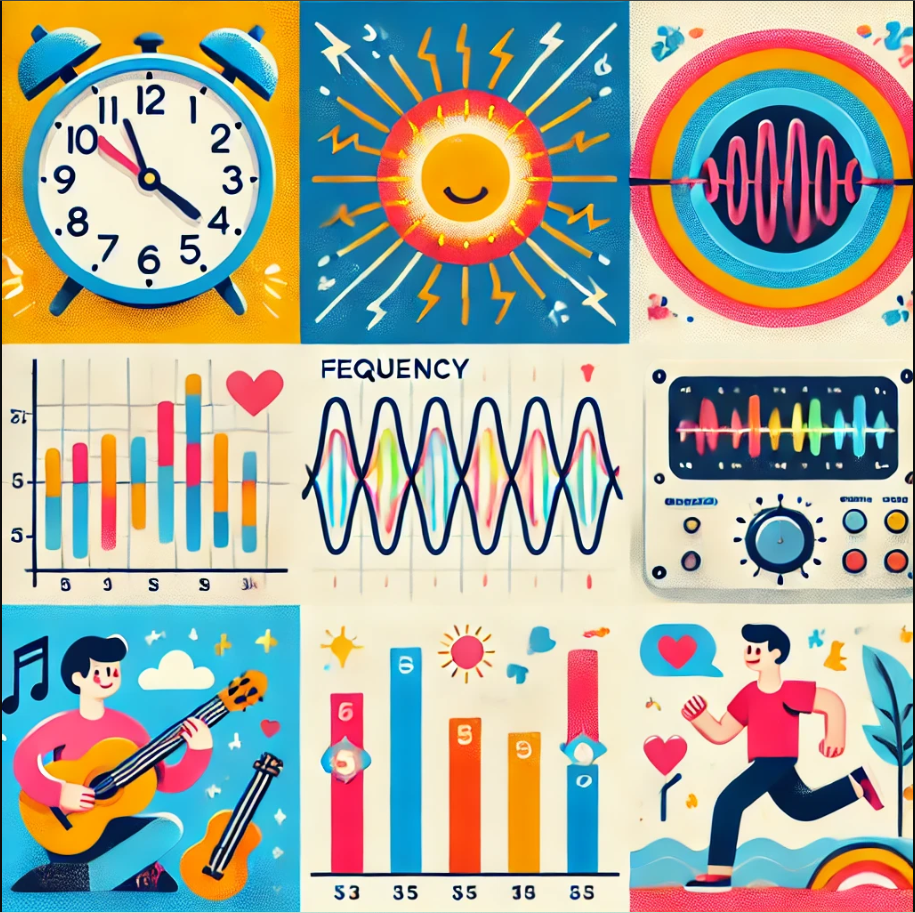Frequency; understanding the definition. As described in the Mirium Webster dictionary, the first one given pretty much sums it up. Which is “1 : the fact or condition of occurring frequently”! However, the next few definitions are (as I see them) examples of the same definition. So, why are these given as varying definitions, and why would it be important to me? Let’s look at each of the others and discover the importance of frequency in our lives.
Diving into the Definitions
The following definitions of frequency look into more specific applications. For example, one definition addresses the measurement of frequency in scientific terms—the number of occurrences of a repeating event per unit of time. Such as sound waves or electromagnetic signals. Another could refer to frequency in statistics—the rate at which a certain event occurs within a given set of rules.
While these definitions may seem specialized, they’re all tied to the main idea of occurrence and repetition. Thus, by analyzing these definitions, we learn how frequency affects things in various contexts and why it’s important to us.
Frequency in Communication and Behavior
In everyday life, frequency plays a vital role in shaping habits, relationships, and communication. Consider how often we engage in certain activities or interact with specific individuals. Repeating actions creates habits, and talking more strengthens relationships. This concept can be extended to areas like:
- Learning and Skill Development: How often we (or frequency of) practice determines how well and fast we master a skill.
- Health and Wellness: Regular exercise and consistent sleep patterns greatly impact our physical and mental health.
- Marketing and Branding: How often we see advertising messages affects how we remember a brand and the decisions on our purchases.
The Science of Frequency
From a scientific view, frequency controls the rhythms of the natural world. The cycles of the moon, the vibrations of atoms, and even the heartbeat—all operate with frequencies we can measure. Understanding these rhythms helps us predict patterns. Plus, we can design technology and make our quality of life better.
For example:
- Electromagnetic Waves: Frequencies determine the characteristics of radio waves, microwaves, and visible light, impacting everything from communication to medical imaging.
- Biological Rhythms: Circadian rhythms, dictated by frequency, regulate sleep-wake cycles and overall health.
- Music and Sound: The frequency of sound waves influences how we hear music and speech, enriching cultural and social experiences.
Why Frequency Matters
Understanding the concept of frequency allows us to make informed choices and understand the world better. Whether you can see the importance of consistent effort, appreciate natural rhythms, or use technology, frequency is a basic aspect of living.
By embracing frequency, we can:
- Improve productivity through structured routines.
- Strengthen relationships by talking more regularly.
- Enhance creativity by understanding and utilizing natural and artificial rhythms.
- Protect our health and wellness.
Summed up
Frequency is more than just a definition in a dictionary; it’s a principle that permeates every aspect of our lives. By understanding its importance and learning from it, we can live happier lives. So, take the time to notice something happening frequently. Then, take a moment to appreciate the rhythm it adds to your existence.
Please feel free to contact us about this or anything you may have seen in our blogs. You can do so by following this link for our Contact Us page.




